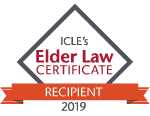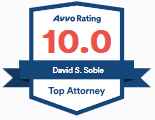
Deeds & Conveyances
Types of Deeds
FAQs
Case Studies

A Few Words About Deeds and Conveyances
Give us a call today to discuss what you are trying to accomplish with your deed. Call us before you sign any conveyance instrument.
Top Deed Questions
Can I use a quit claim deed to transfer a property if there are back taxes owed on it? I don't want to pay the back taxes at this time?
Yes. Generally, a quit claim deed can be executed and recorded without having to pay back property taxes. This is different than issuing a warranty deed, where the county register of deeds will require all property taxes to be paid current before recording.
Which is the best way to have property transferred, a quit claim deed or warranty deed?
It depends on what type of warranties and assurances you wish to receive from the seller and what representations you wish to make to the buyer. You should first have a property title search reviewed by a competent real estate attorney as this definitely helps in your decision.
I am a co-owner of a property. How can I make the co-owner sell the house since I don't want to pay for the repairs at the home anymore?
If you have a half interest in a home as tenants in common with another owner, you can sell your interest without the other owner’s permission. Or you can also file a partition action that requests that the court to order that the home be sold and that the sales proceeds be split in accordance with your legal interest.
My fiancé and I bought a house together. He is on the mortgage, but we both are on deed. Can he remove me from the deed without consent?
The only way you can be removed from the deed is either with a court order or by your own endorsement.
My mom is elderly and wants to put my name on the deed to her house that is paid off. Should we hire an attorney for this?
First, how does the deed list your mother’s interest? Is this a Quit Claim Deed? A Warranty Deed? A Covenant Deed? A Ladybird Deed? Second, does she want you to hold it Jointly with Rights of Full Survivorship or as Tenants in Common? If you don’t draft deeds on a regular basis, it is probably best to use a real estate attorney to properly convey title to a property. That way you know it is done right and there are no far reaching legal or tax consequences.
My boyfriend and I are buying a property together. We are going to both be on the deed. How can I protect my finances if I am paying for most of the purchase price? What if we split up?
In the event of a break up, it’s important to have an agreement at the onset that addresses how the parties will split sales proceeds or specifies when a property is to be sold or refinanced. Real estate attorneys create these agreements in advance BEFORE you sign a deed or purchase a property.
Videos
Articles About Deeds
Read our most recent articles on this topic
Race, Notice and Delivery – The Importance of Filing Your Real Estate Deed
The Meaning of \"Race Notice\" Michigan is a race notice state. When there are conflicting claims of interest in a property, the party who has recorded their interest first can claim rightful ownership provided that other requirements of the state\'s recording statutes are met. Essentially, parties in interest must “win…
Deed Correction: What to Do When A Deed Contains Mistakes
Sometimes, not everything in life goes as planned. This is never more true than when it involves real estate and the law. At times, when drafting real estate documents, such as a deed, a mistake can happen despite the drafter’s best efforts. It is not uncommon for a deed to contain…
How to Record Deeds and Real Estate Documents in Michigan
Perhaps you have experienced your own frustration with your county’s recording office before. You read through all the necessary requirements for recording a deed or other real estate instrument with your county recording office, only to have it rejected and returned back to you days or even weeks later. It…
Our Partners & Sponsors
Claim Your Free Book Now!

















